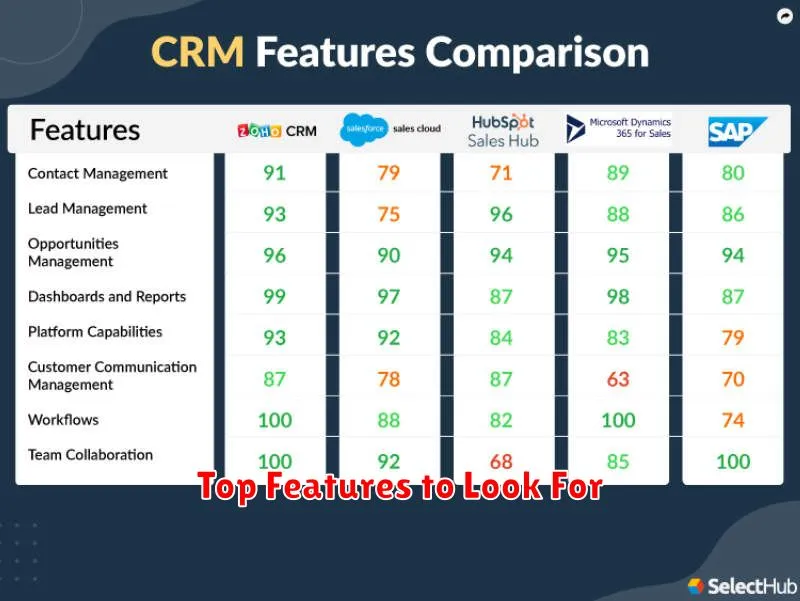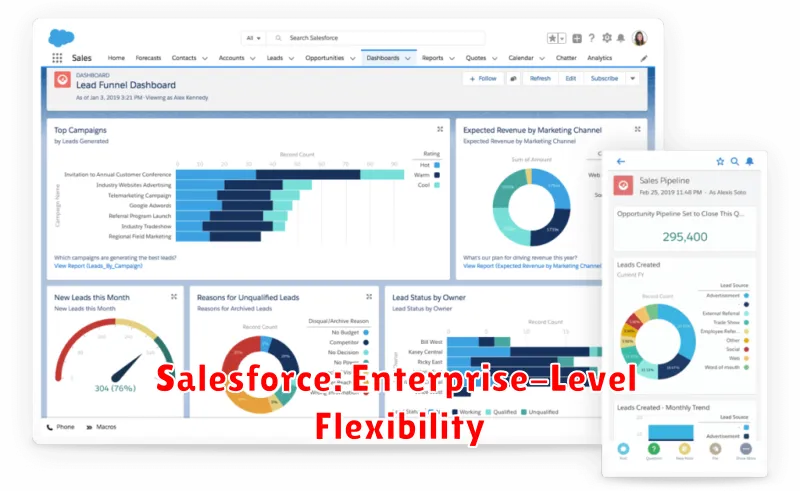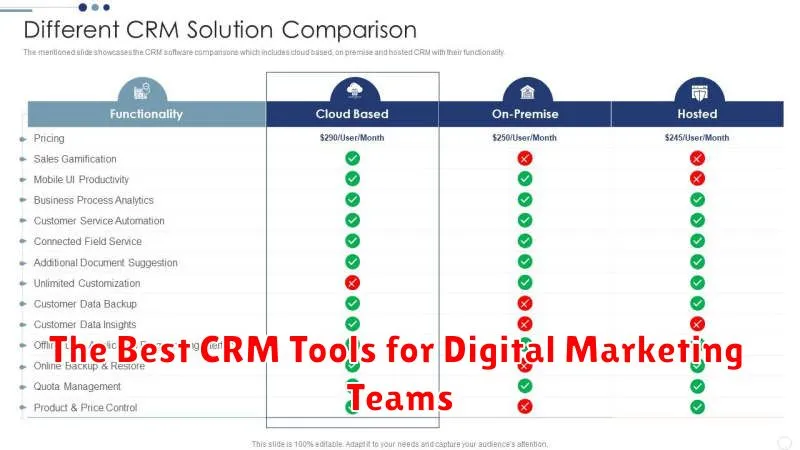In today’s digital landscape, a Customer Relationship Management (CRM) system is more than just a contact database; it’s a powerful tool that can significantly enhance the effectiveness of your digital marketing team. The right CRM can streamline marketing automation, personalize customer journeys, and provide valuable insights into customer behavior. Choosing the best CRM for your digital marketing team can be a complex process, given the abundance of options available. This article will explore some of the best CRM tools available, highlighting their key features and benefits for digital marketing professionals.
From improving lead generation and lead nurturing to enhancing customer engagement and customer retention, the right CRM can revolutionize your digital marketing strategy. We will examine CRM tools that offer robust marketing automation capabilities, social media integration, email marketing features, and comprehensive analytics dashboards, enabling your digital marketing team to maximize their impact and drive measurable results. Whether you are focused on B2B marketing or B2C marketing, finding the best CRM is crucial for success in the competitive digital marketing world.
What Is a CRM and Why It Matters
CRM stands for Customer Relationship Management. It’s a system, often powered by software, that helps businesses manage and analyze customer interactions and data throughout the customer lifecycle.
The goal is to improve business relationships with customers, assist in customer retention, and drive sales growth. CRMs organize and automate key processes, providing a central hub for customer information, from initial contact to post-sale service.
A CRM is essential because it allows businesses to offer personalized experiences, improve customer service, and streamline marketing efforts, leading to increased efficiency and profitability.
Top Features to Look For

When choosing a CRM for your digital marketing team, certain features are crucial for maximizing effectiveness. Look for contact management capabilities that allow for detailed segmentation and personalized communication. Lead scoring helps prioritize high-potential leads, while marketing automation streamlines campaigns and nurtures prospects. Analytics and reporting offer valuable insights into campaign performance, allowing for data-driven optimization.
Integration with existing marketing tools is also essential. Ensure the CRM seamlessly connects with your email marketing platform, social media channels, and other key software. Finally, consider the scalability of the platform. Choose a CRM that can grow with your business and adapt to evolving needs.
HubSpot: All-in-One for Growing Teams
HubSpot is a popular choice for growing teams due to its comprehensive suite of tools and scalable pricing plans. It offers features for marketing, sales, customer service, content management, and operations, all within a single platform. This eliminates the need for multiple disparate systems and allows for streamlined workflows and improved collaboration.
With HubSpot’s free CRM, growing businesses can get started with basic features and upgrade as their needs evolve. This makes HubSpot a cost-effective solution for businesses looking to consolidate their tech stack and improve efficiency.
Salesforce: Enterprise-Level Flexibility

Salesforce offers extensive customizability and scalability, making it a popular choice for enterprise-level businesses. Its comprehensive features cover sales, marketing, and customer service.
Key features include robust workflow automation, lead management, opportunity tracking, and advanced analytics. Salesforce’s highly flexible platform allows businesses to tailor the CRM to their specific needs.
Zoho CRM: Affordable and Powerful
Zoho CRM stands out as a cost-effective yet feature-rich solution. It offers a range of tools suitable for various business sizes, from small businesses to enterprises.
Key features include sales force automation, marketing automation, customer support, and analytics. Zoho CRM also boasts robust customization options, allowing you to tailor the platform to your specific needs.
Its affordability combined with its comprehensive features makes Zoho CRM a strong contender for digital marketing teams seeking a powerful yet budget-friendly CRM.
ActiveCampaign: Email Marketing Integration
ActiveCampaign stands out with its robust email marketing integration, making it a powerful tool for digital marketing teams. It goes beyond basic email blasts, offering advanced automation features.
This includes sophisticated workflows, triggered emails based on user behavior, and dynamic content personalization to enhance engagement and conversions. This tight integration allows marketers to nurture leads effectively and streamline their email campaigns directly within the CRM.
Freshsales: AI-Powered Insights
Freshsales distinguishes itself with its AI-driven capabilities. These features provide valuable insights to sales and marketing teams.
Freddy AI, Freshsales’s AI engine, offers lead scoring, deal insights, and next-step recommendations. This helps prioritize leads and personalize interactions for increased conversion rates.
Furthermore, AI-powered chatbots handle routine inquiries, freeing up human agents for more complex tasks.
Pipedrive: Visual Sales Pipeline
Pipedrive stands out with its intuitive visual sales pipeline. This allows teams to easily track deals through various stages.
Its drag-and-drop interface simplifies managing leads and opportunities, providing a clear overview of sales progress. Pipedrive’s focus on pipeline management makes it ideal for teams prioritizing sales process visualization and efficiency.
Choosing the Right CRM for Your Business
Selecting the right CRM is crucial for maximizing your digital marketing efforts. Consider your business size, whether you’re a small startup or a large enterprise. Different CRMs cater to different needs.
Evaluate your budget. CRM pricing varies widely, from free options to enterprise-level subscriptions. Identify your key features. Do you need robust analytics, email marketing integration, or social media management tools?
Think about scalability. Choose a CRM that can grow with your business. Finally, consider ease of use and implementation. A user-friendly CRM will encourage team adoption and streamline your workflows.
Best Practices for CRM Adoption
Successful CRM adoption requires careful planning and execution. Clearly define your goals and how a CRM will contribute to achieving them. Secure buy-in from all stakeholders, especially your sales and marketing teams.
Prioritize data migration and cleansing to ensure accurate and reliable information. Provide thorough training for all users on the system’s features and functionality. Continuously evaluate and refine your CRM processes to maximize its effectiveness.

